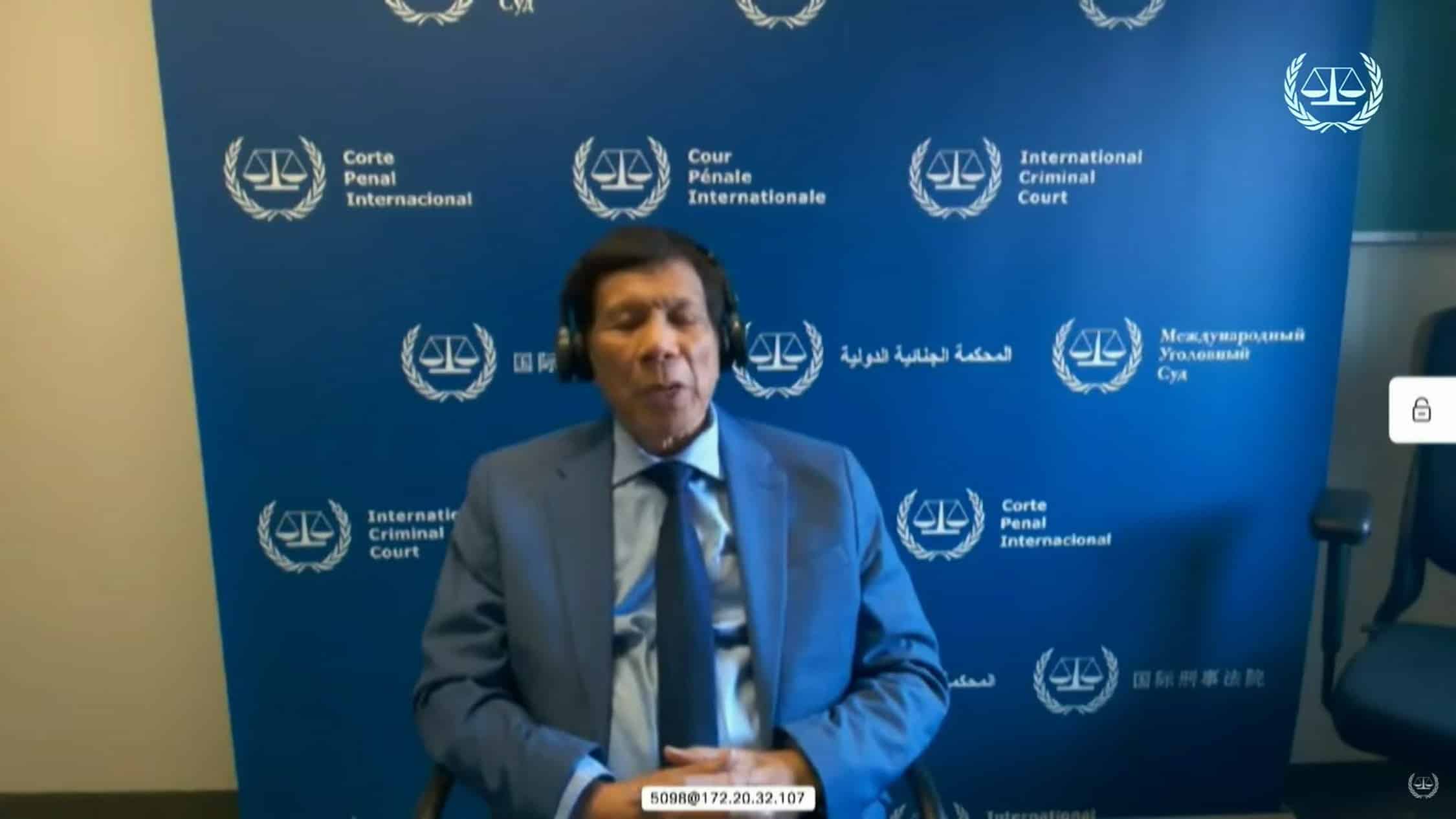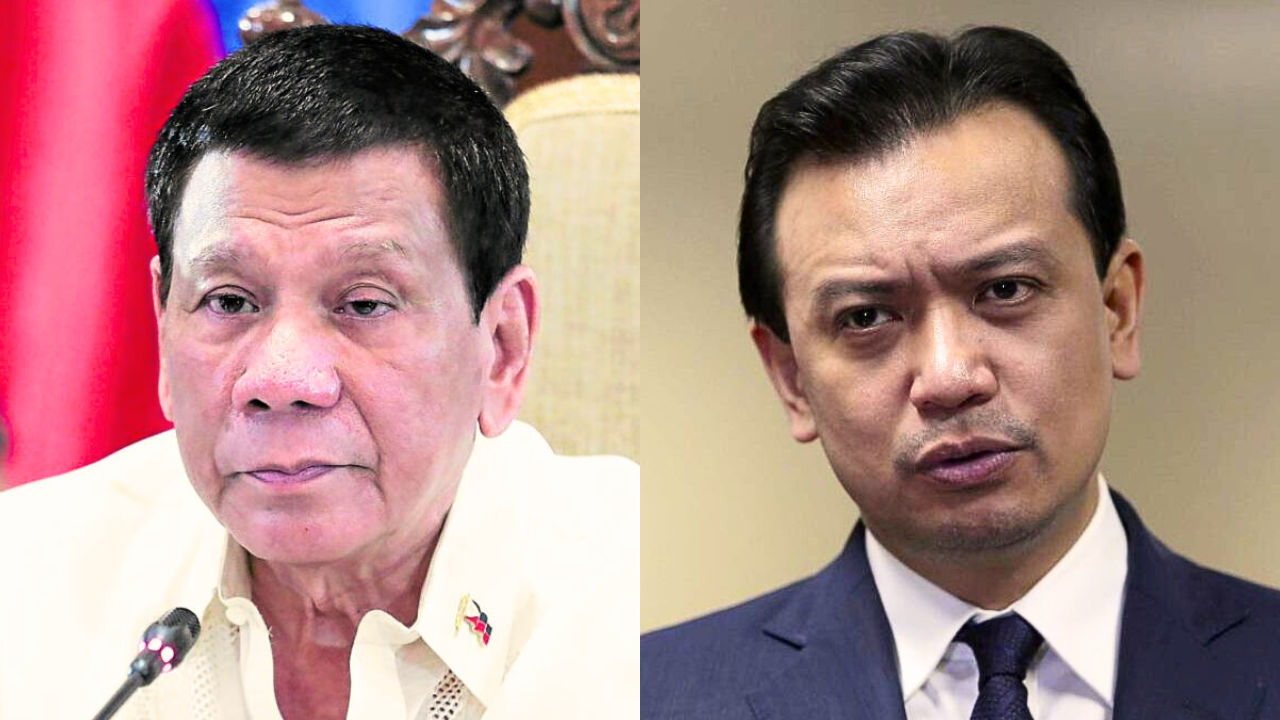Duterte & ICC: Latest Developments & Political Fallout Read Now!
Can a legal battle reshape a nation's political landscape? The unfolding drama surrounding former President Rodrigo Duterte and the International Criminal Court (ICC) is doing just that, threatening to upend the fragile balance of power in the Philippines.
The political tremors are particularly strong in Manila, with reverberations felt across the archipelago. The ICC's pursuit of Duterte, focused on his controversial "war on drugs," has become a lightning rod, igniting debates about sovereignty, human rights, and the future of Philippine politics. The timing of the arrest warrant, especially with the 2025 elections on the horizon, has introduced a volatile new element into an already charged atmosphere. This legal challenge isnt just a case about the past; it's a high-stakes game with profound implications for the country's future.
| Category | Details |
|---|---|
| Full Name | Rodrigo Roa Duterte |
| Date of Birth | March 28, 1945 |
| Place of Birth | Maasin, Southern Leyte, Philippines |
| Education | San Beda University (Bachelor of Arts, Political Science); San Beda University (Bachelor of Laws) |
| Political Affiliation | PDPLaban (formerly) |
| Political Positions Held | President of the Philippines (2016-2022); Mayor of Davao City (1988-1998, 2001-2010, 2010-2016); Vice Mayor of Davao City (1986-1988); Congressman of Davao City (1998-2001) |
| Key Policies | War on Drugs; Federalism; Anti-Corruption Measures |
| Controversies | Extrajudicial killings; Human rights concerns; Allegations of corruption |
| Current Legal Status | Facing investigation by the International Criminal Court (ICC) regarding alleged crimes against humanity related to the War on Drugs |
| Notable Achievements | Significant infrastructure projects; Reduced crime rates in Davao City during his mayoral terms |
| Reference Website | Wikipedia: Rodrigo Duterte |
The ICC's investigation into Duterte's "war on drugs" commenced in 2017, predating the Philippines' official withdrawal from the Rome Statute in 2018. The Court is examining alleged extrajudicial killings associated with the campaign, which began when the Philippines became a treaty party on November 1, 2011, while Duterte was still the mayor of Davao City, and continued until March 16, 2019. The prosecution has already submitted the initial body of evidence in the case, underscoring the ICC's commitment to pursuing the matter despite the countrys withdrawal.
The former president's arrest, which took place on March 11, 2025, at Ninoy Aquino International Airport, further escalated the situation. While the specifics surrounding the arrest are subject to evolving reports, the fact remains that this event has amplified the spotlight on the ICCs pursuit of justice. Interpol has not yet notified the Philippine government of any additional arrest warrants beyond Duterte's case, although the possibility remains a concern, particularly for those associated with his administration.
The legal challenges Duterte faces extend beyond the ICC. His case has been drawn into the political struggle between the Duterte and Marcos clans. This intricate web of political maneuvering adds another layer of complexity, making it difficult to predict the ultimate outcome of the legal proceedings. The public's perception, influenced by political allegiances and competing narratives, will also play a crucial role.
The timing of the ICC's actions has also been a significant factor. The arrest warrant arrived at a precarious moment for President Ferdinand Marcos Jr.'s political agenda. The 2025 elections loom, and this legal development could unexpectedly influence the electoral landscape. Dutertes supporters, and potentially even some of his former political allies, may garner sympathy for the former president, which could, in turn, bolster their own standings.
The legal challenges presented by the ICC are not without their critics. Some question the court's jurisdiction over the Philippines, particularly after the country's withdrawal from the Rome Statute. Critics highlight legal dissent and constitutional concerns about the court's overreach. Some view the court as ineffective, especially when dealing with larger and more powerful nations. These critiques are amplified by nationalistic sentiments and concerns about sovereignty, which have fueled political resistance to the ICCs involvement.
The case has also highlighted the complex relationship between the Marcos and Duterte families. Some believe the case could further unravel the ties between the two families, especially given the existing political divisions. Rumors of financial dealings and shady dealings have surfaced, adding further layers of uncertainty and intrigue.
The legal defense team of Duterte has expanded, with international lawyer Dov Jacobs joining to assist. This suggests a determined effort to mount a robust legal defense and to navigate the complex international legal landscape. The defense strategy, in what has now become a high-stakes chess game, could greatly affect the outcome.
The ICC case continues to impact the business world. The scrutiny is reflected in headlines about financial bonuses and potential links between certain individuals and controversial business practices. The scrutiny is wide-ranging, with various investigations ongoing into a range of issues.
The fallout of the ICCs actions is being felt across various sectors, which include investigations into business dealings, and other potentially illicit activities. It is affecting the current political structure in the country, with the upcoming elections and political families being affected.
The complexities in this legal proceeding are vast and deep, and their effect is visible in the political and social atmosphere. It's a situation that highlights how legal matters, and international bodies, can have a lasting and complicated impact on national politics.

